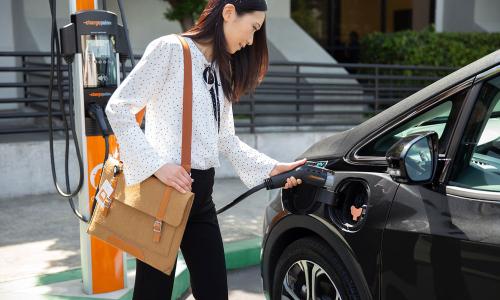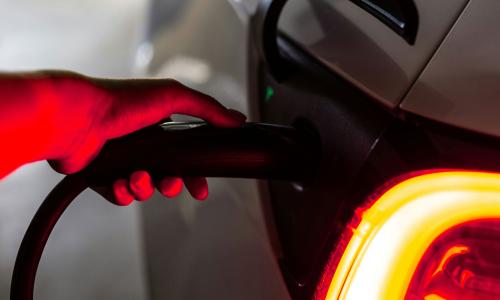Table of Contents
In addition to cutting emissions, electric cars provide many benefits to drivers.
1. Electric vehicles can save you money
Across the country, electric vehicles are cheaper to fuel than their gasoline-powered counterparts. Every electricity provider in the 50 largest US cities offers a rate plan that makes filling up on electricity cheaper than gasoline. Depending on where you live, drivers can save from several hundreds to upwards of $1,000 per year on fueling costs. View the average savings in your city.
Electric vehicles can also save you on maintenance costs. Battery EVs have no gasoline engine, they do not need oil changes, spark plugs, or timing belts, and unlike gasoline motors, electric motors require no routine maintenance. These reduced maintenance costs can save an EV owner between $6,000 – $12,000 over the life of the vehicle, compared to a gasoline-powered version of their vehicle.
2. Electric vehicles cut your emissions
Even when the electricity used to fuel an EV comes from the dirtiest coal-dominated grid in the US, EVs still produce less global warming pollution than their conventional counterparts. The average EV in the US today produces the emissions equivalent of a gasoline car that gets 100 miles per gallon. The emissions performance of EVs is set to only improve as more wind and solar power displaces coal-fired electricity generation. Many EV owners are also choosing to pair their EV with rooftop solar panels and home energy storage units. When powered exclusively by renewable energy, an EV can operate nearly emissions free. Fully electric vehicles also eliminate air pollution-causing tailpipe emissions like fine particulate matter. These air pollutants shorten people’s lives by causing or exacerbating respiratory and cardiovascular diseases and increasing cancer incidence.
3. Electric vehicles offer you a better driving experience
An electric engine generates instant torque, which means that electric vehicles zoom off starting lines and provide smooth, responsive acceleration and deceleration. Electric vehicles also have a low center of gravity, which improves handling, responsiveness, and ride comfort.
4. Electric vehicles cut your oil use
Human-caused climate change—primarily from burning fossil fuels—is the main driver of the rising trend in global average temperatures. Climate impacts, including deadly heatwaves, floods, and wildfires, are here and rapidly worsening, imposing a significant toll on people, ecosystems, and the economy. The science shows we must cut emissions aggressively and move toward a phase out of fossil fuels to limit these harms and secure a livable future. Currently, the majority of vehicles on the road are powered by gasoline or diesel but EVs allow drivers to move around without burning fossil fuels.. EVs offer the potential to disrupt this status quo relationship between transportation and oil, and offer a cleaner, better way to fuel transportation for everyone. Overall, electric vehicles can cut US oil use by 1.5 million barrels a day by 2035.
5. Electric vehicles are convenient
Instead of searching for a gasoline station with the cheapest prices, you can charge at home at a cheaper and much more predictable cost. And plugging in at home takes only a few seconds and lets you wake up with a “full tank” every morning. EVs also have other convenient advantages. Battery electric vehicles are mechanically much simpler than a conventional gasoline car, so the maintenance requirements are often much simpler and, for this reason, cheaper to maintain. Drivers of fully-electric cars do not have to change their car’s motor oil every 5,000 to 10,000 miles, and they never have to schedule spark plug changes, timing belt replacements, or other engine tune up items. Depending on your location, EVs have additional benefits, like access to restricted express lanes on highways and bridges, special parking spots, and reduced or free tolls.




